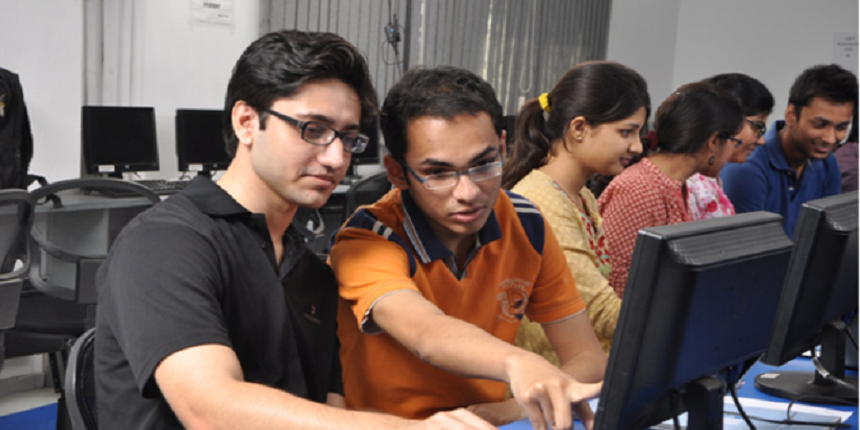AP ECET 2024 registration window closes today without late fee; CSE syllabus
Vagisha Kaushik | April 15, 2024 | 09:22 AM IST | 2 mins read
AP ECET 2024: Eligible aspirants can apply at cets.apsche.ap.gov.in/ECET/. Know how to apply.
Top Engineering Colleges Accepting AP ECET Score
Candidates can check Top Engineering Colleges in India Accepting AP ECET Score here.
Check Now
NEW DELHI: The Jawaharlal Nehru Technological University (JNTU) will close the registration window for the Andhra Pradesh Engineering Common Entrance Test (AP ECET) 2024 today, April 15, without a late fee. Eligible aspirants can apply for the engineering exam on the official website, cets.apsche.ap.gov.in. AP ECET 2024 will be conducted on May 8 for admission to the second-year in engineering and pharmacy programmes.
Latest: AP ECET Past Question Papers
Don't Miss: Top 50 Engineering Colleges in Andhra Pradesh
To apply for the exam, candidates belonging to the OC category will have to pay Rs 600 while BC category applicants will be required to make payment of Rs 550. The application fee for SC, ST candidates is Rs 500.
How to fill AP ECET 2024 application form?
- Go to the official website, cets.apsche.ap.gov.in/ECET/
- On the homepage, click on the step 1 link
- Fill eligibility details and payment options
- Pay fee and fill the application form
- Submit the form and take a print out
AP ECET 2024: CSE syllabus
The unit-wise questions and topics in the computer science engineering syllabus are given below.
Unit | Questions |
Digital Electronics | 8 |
Software Engineering | 8 |
Computer Organization and Microprocessors | 12 |
Data Structures through C | 10 |
Computer Networks | 12 |
Operating Systems | 12 |
DBMS | 10 |
Object Oriented Programming through C++ | 10 |
Java Programming | 10 |
Web Technologies | 8 |
Also read AP EAPCET 2024 registration without late fee ends today; top engineering colleges accepting scores
The units and topics are as follows:
Unit | Topics |
Digital Electronics | Number systems-logic gates, boolean algebra and basic combinational circuits-flip-flops-counters and registers-additional combinational circuits. |
Software Engineering | Basics of software engineering designs and life cycle models software project management-requirement analysis and specifications- software design, coding-software testing, debugging, reliability, quality management and maintenance. |
Computer Organisation and Microprocessors | CPU Organization-Information representation and arithmetic operations-memory organization-I/O organization- fundamentals of 8086 and advanced processors. |
Data structures through C | Introduction to data structures, searching and sorting-linked storage representation-linked lists-linear data structures-stacks-linear data structures queues-non-linear data structures-trees. |
Computer Networks | Introduction to networks-LAN components, devices, tools, and network topologies-network addressing and subnetting-networks protocols and management-basic network administration. |
Operating Systems | Introduction to operating system-process management- synchronization and deadlocks-memory management-disk scheduling and file management |
DBMS | Concepts of DBMS and RDBMS-Concepts of SQL-basics of PL or SQL- advanced PL or SQL-Concepts of NoSQL and MongoDB. |
Object oriented Programming through C++ | Object-oriented programming concepts and introduction to C++ functions, arrays, pointers and references- constructors, destructors and operator overloading- inheritance and virtual functions- C++ I/O and templates. |
Java Programming | Basics of java and overloading-concepts of inheritance, overriding, interfaces and packages-I/O streams and collections-exception handling and multithreaded programming-applets, AWT and event handling. |
Web Technologies | Principles of Web Designing and HTML introduction- various HTML tags and usage of style sheets-understand XML and client side scripting using Java Script-JavaScript Ajax and J Query-web servers and server side scripting using PHP. |
Follow us for the latest education news on colleges and universities, admission, courses, exams, research, education policies, study abroad and more..
To get in touch, write to us at news@careers360.com.